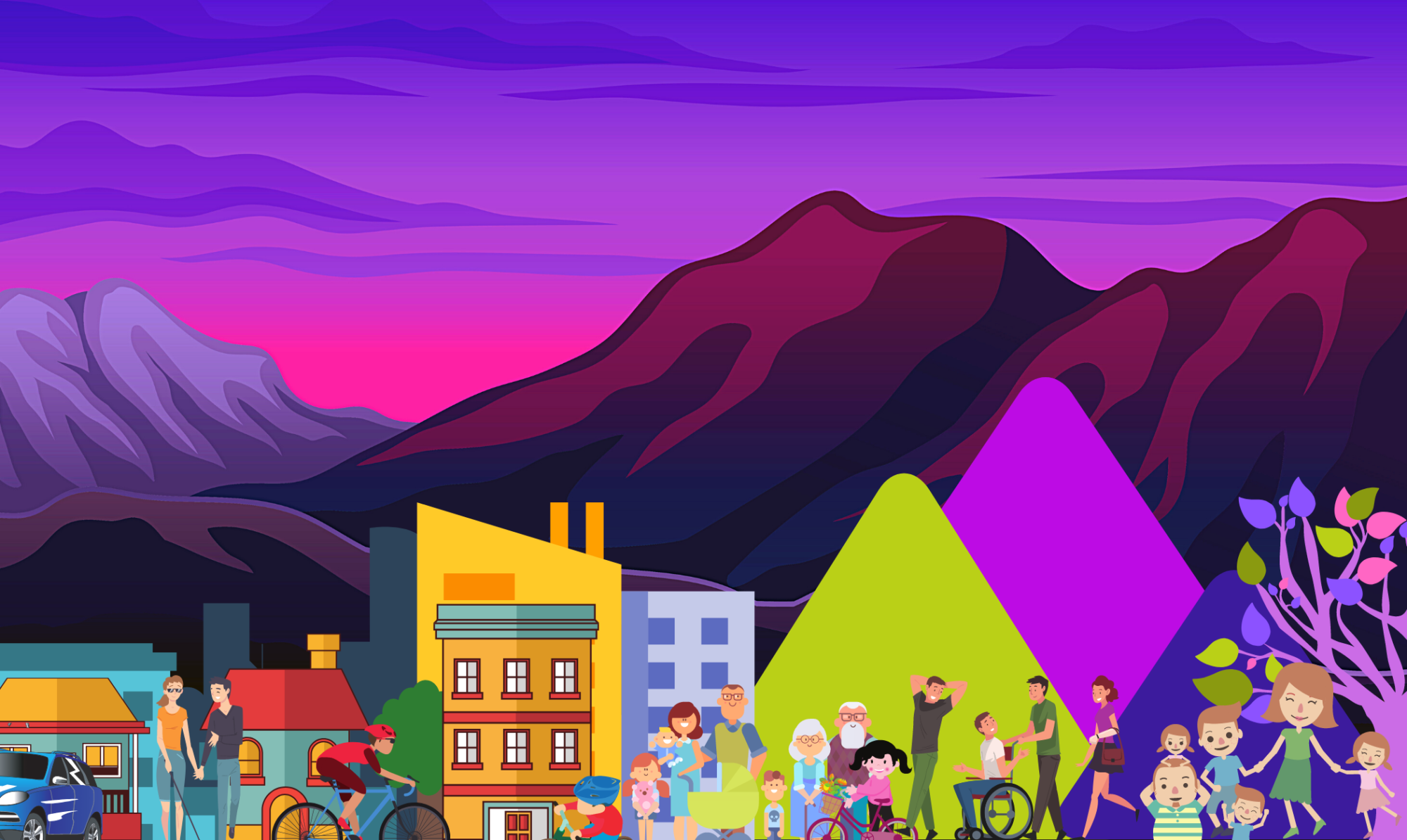Renzo Andrich interviews Litzy, Fabio and Elena Recalcati (Milano) >> VIDEO
Renzo. Litzy and Fabio Recalcati, from Milan, Italy, together with Elena, one of your four children, thank you for being here with us. Please tell us something, in brief, of your story.
Litzy. Thank you! We are very happy to be with you. I am Litzy (62 years old), here with me is Fabio (67) and Elena (almost 22). We have been for 35 years, we are already grandparents, our three oldest children are already on their own while Elena still lives with us. When we were waiting for her, we did not know she had a Down syndrome. We had a very normal pregnancy, however there were complications at the birth; soon we feared for her and her health because we had to stay in the hospital for one month, there were treatments, we had some problems, and we were afraid that in addition to trisomy there were permanent neurological damages. Instead, she brilliantly overcame everything. She attended school, she went all the way to graduation at the artistic high school and now she is getting ready to enter the world of work. Surely in this challenge, in this strong shake-up, which was the disability coming into our family, we have been able cope thanks also to the help of the friends we had around us, of the families we had around, and to our experience within the Focolare Movement. We immediately realized that we could not make it alone, we needed a lot of specific help, of many kinds of support that have never been lacking, both as practical help and psychological support.
Renzo. When it comes to accessibility, people tend to think only to those “architectural things” that concern people who have a motor or a visual or an auditory limitation, and you don’t realize that maybe there are also barriers that exclude people who have intellectual or relational problems. In your experience, did you encounter some such barrier?
Fabio. I am going to try to answer. Yes, we did. Elena did not have any major physical problems but certainly there are some intellectual problems. The thing we noticed right away is this: that the disabled person is usually framed in a kind of “fence” in which he or she is defined, its potential is defined a priori: “will be able to do that, will not be able to do that…”. There is also a stereotype connected to this: for example, somebody says that people with Down syndrome have a particular propensity for music, are particularly emotional, are very affectionate. All these things are actually not true, because a person who has a disability, whatever it may be, is a unique person, with his or her positive sides and his or her downsides, that are his or her limits; this by the way, disability is something which must also be seen in relation to each of us: each of us, in our lives, may happen to go through phases of disability or fragility, let’s simply think to when we age. So, this “positive” and “negative” is something typical of any person, at any age of life. This look, this way of looking at the disabled person, was the limit that we soon saw in other people.
Renzo. Barriers are therefore stereotypes and prejudices.
Fabio. Stereotypes and prejudices. Of course, the opposite risk must also be borne in mind: to think that every person is capable of everything. In real life there are limits. This is true for everyone. Only, the limits are diverse: this is a fundamental fact. Of course, in trying to address these problems we often found ourselves, how I can say it, scared. How do we deal with these things? Deal with things in the present moment: this was somewhat the key to overcoming these difficulties
Renzo. It’s very important what you say: is there any message that is close to your heart, that you’d like to pass on to us to help each other to build a more inclusive society? What should we do?
Litzy. The 22-year experience with Elena was incredibly positive in making us realize that we could not do things alone. So, the important message for us is to team up, to work with others, each with their own specific skills, with their own possibilities, and above all with a great availability to listen to what the other can offer you: a different point of view, a bit of help, some support. You really cannot make it on your own. This was also so paradigmatic in the experience of BASKIN, as Elena may tell us. Because when we saw the first match of this sport which is so inclusive, we thought it could be the sketch of a more inclusive society.
Renzo. You mentioned a sport that probably few they still know: BASKIN. Elena, can you tell us what it is?
Elena. Sure. BASKIN is more or less like a normal basketball, because in fact there are two traditional baskets. Then there are other baskets, more or less in the center of the playing field, because they’re actually in the pivot area, where pivots in role one and role two can make the basket from the highest basket. Instead, the others who use wheelchairs they struggle more but with other companions who have motor difficulties they make basket from the lowest basket.
Renzo. I understand. So, it’s a basketball, redesigned in a way that people can play with their different sports abilities. Thank you, thank you so much for being with us!
